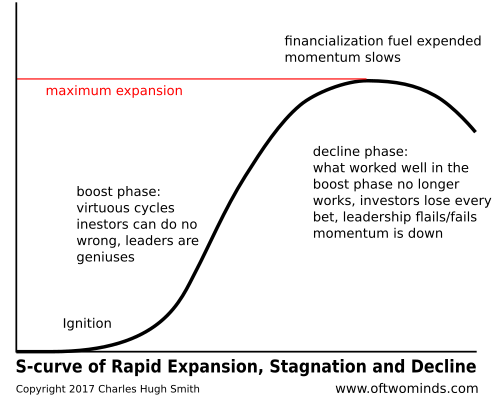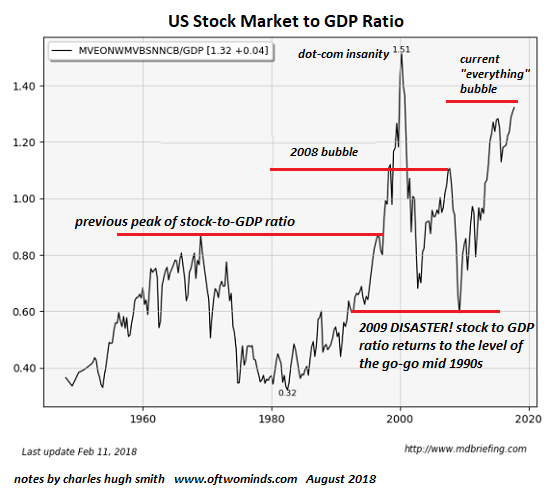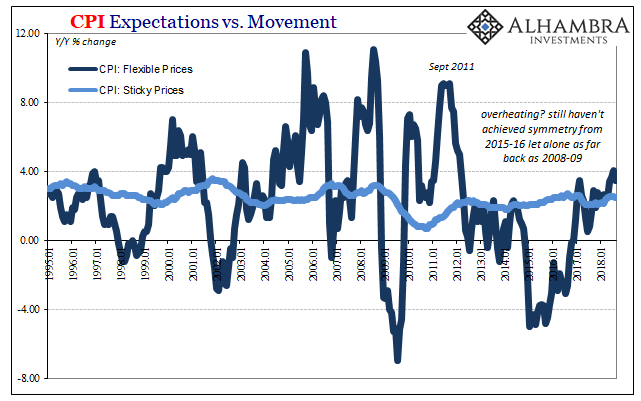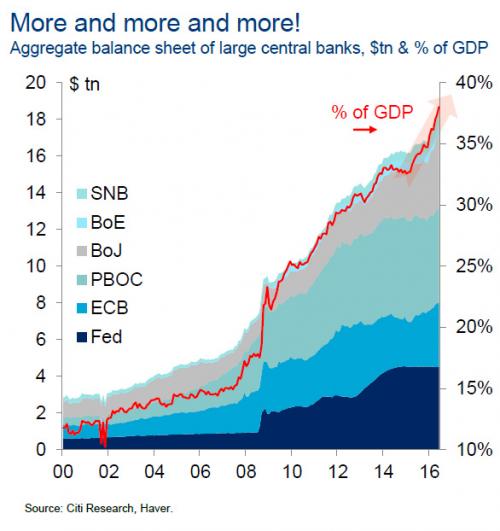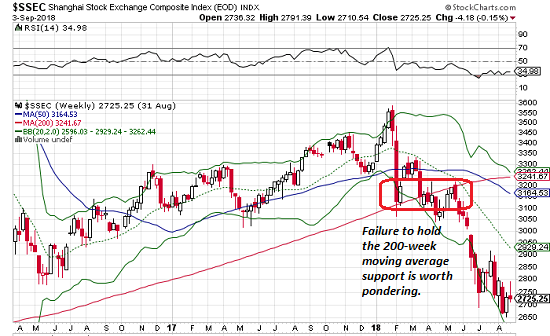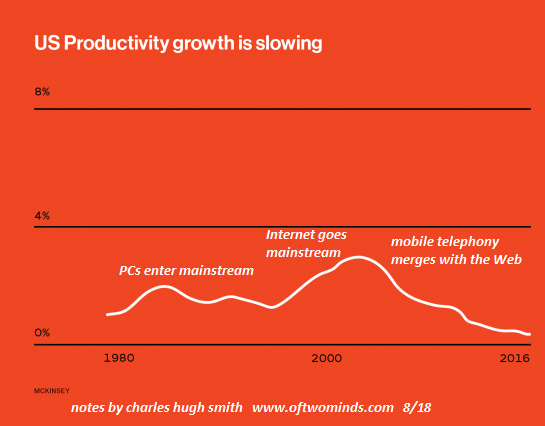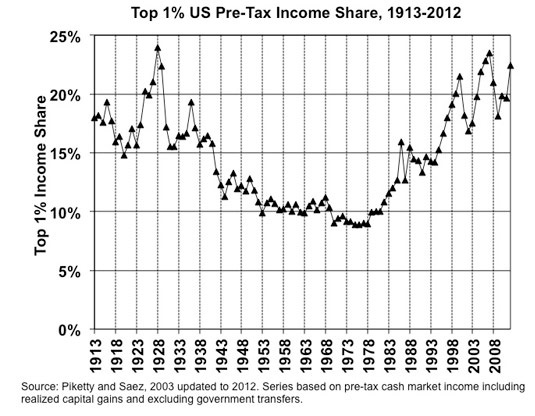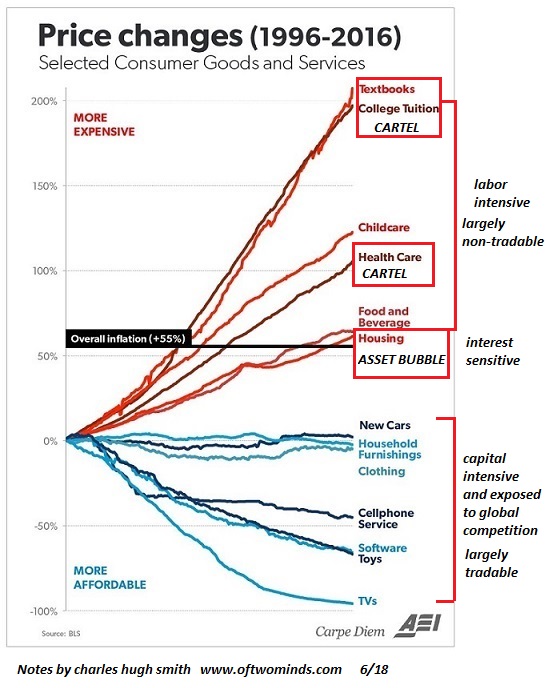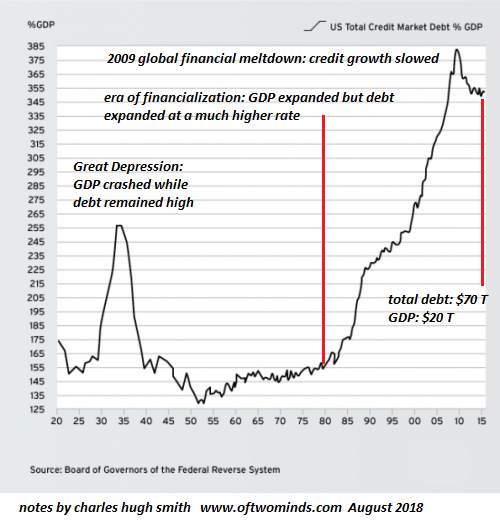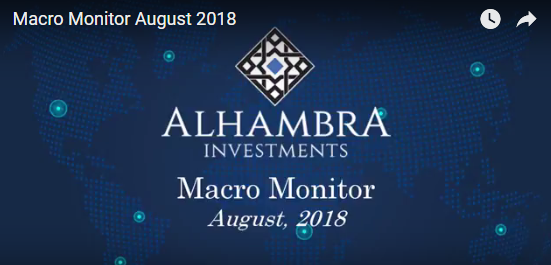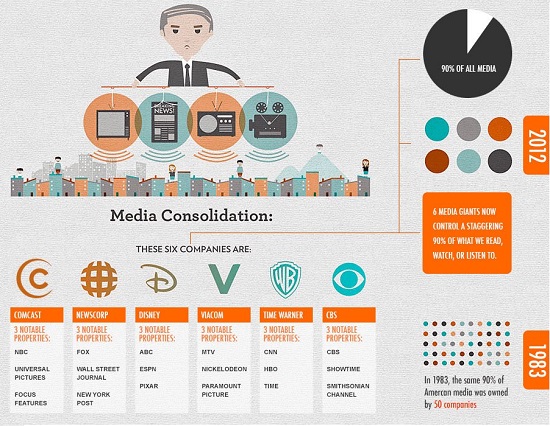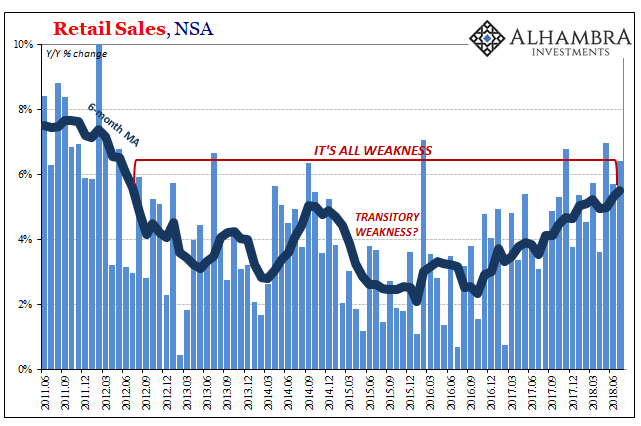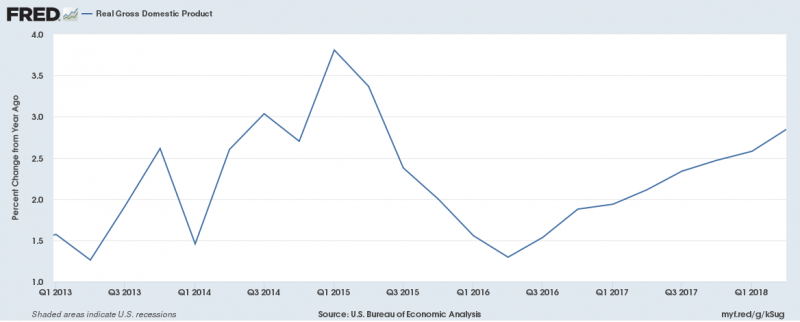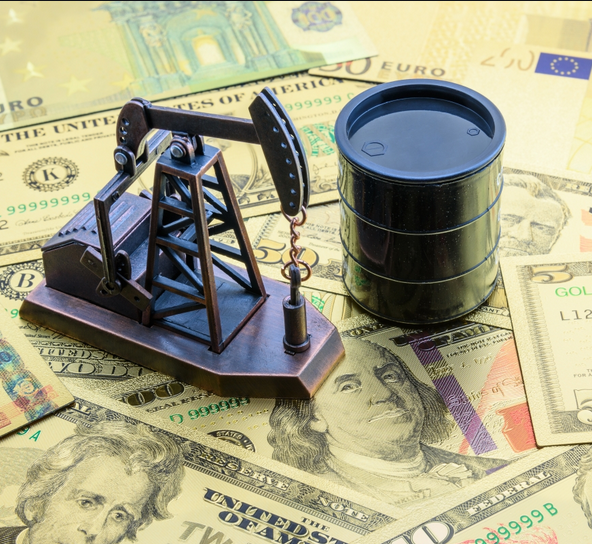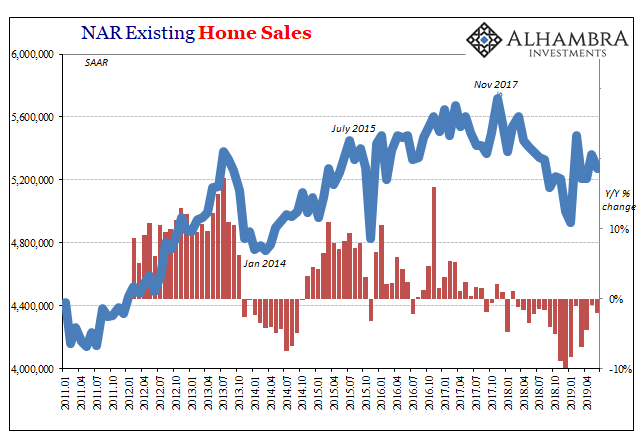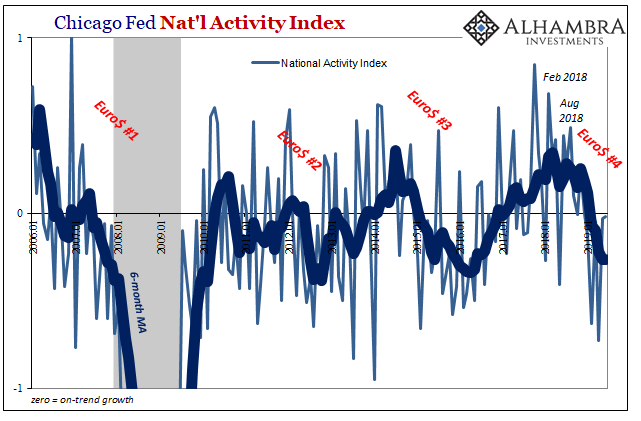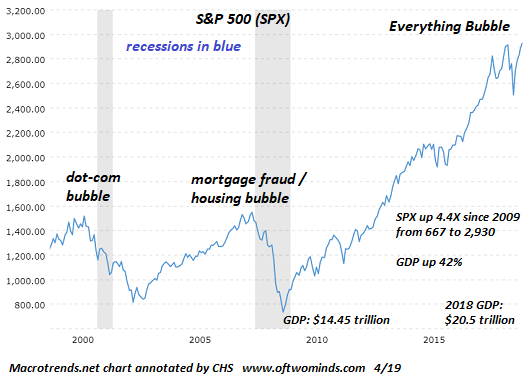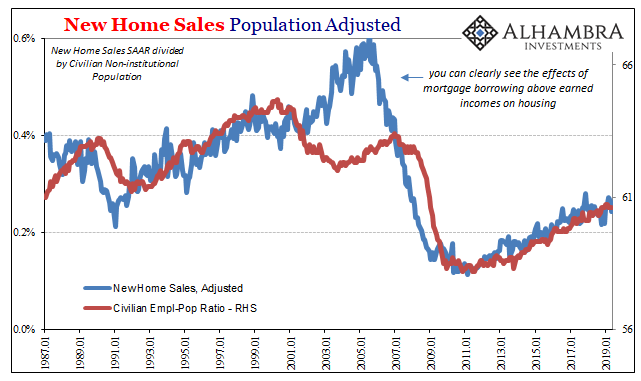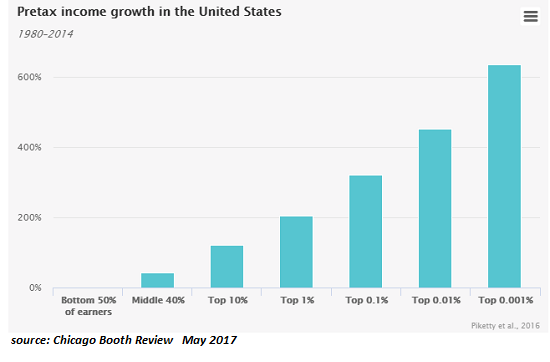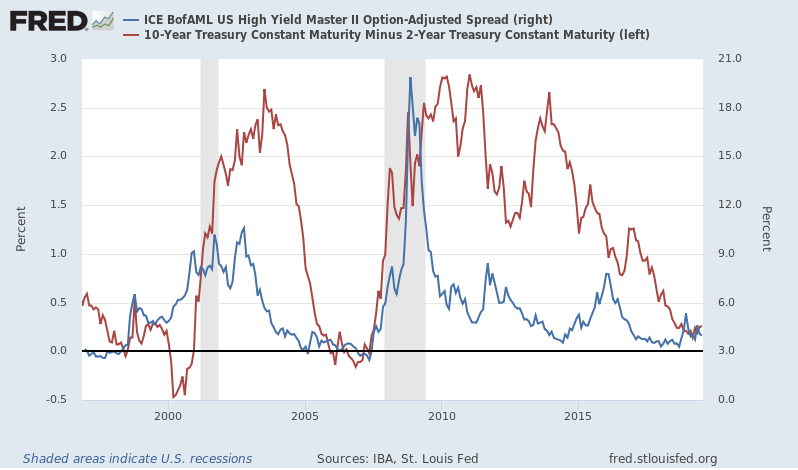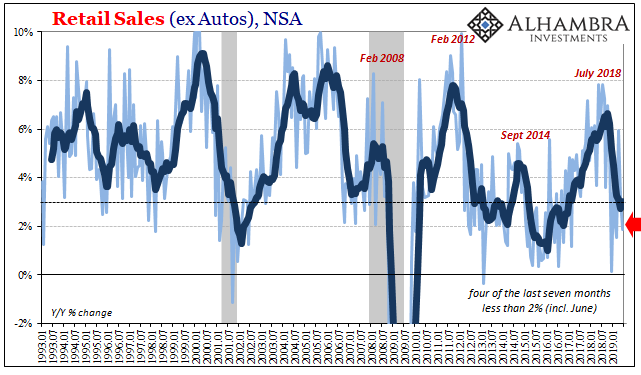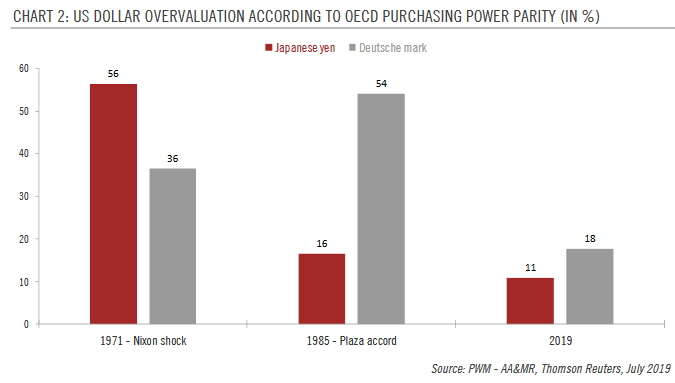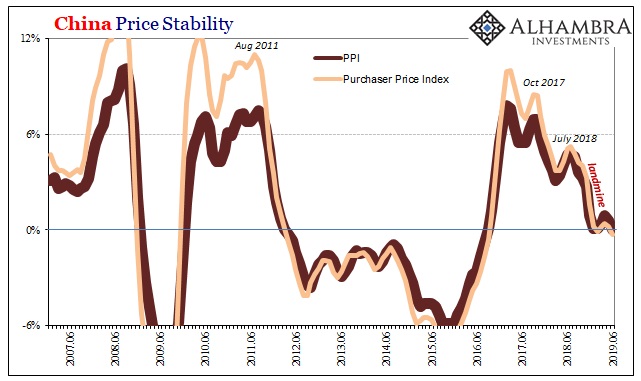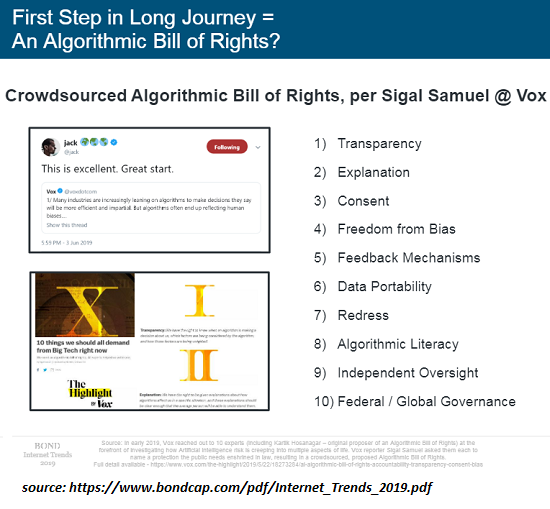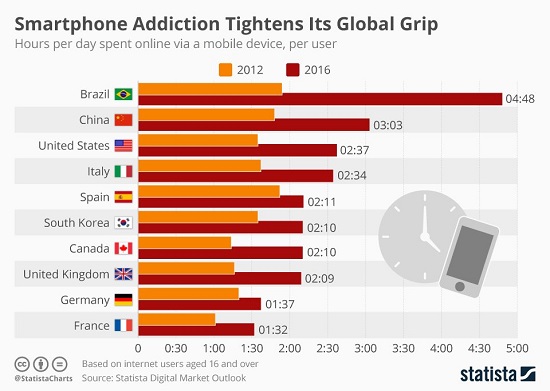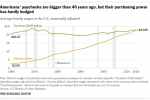Category Archive: 5.) The United States
When Does This Travesty of a Mockery of a Sham Finally End?
Credit bubbles are not engines of sustainable employment, they are only engines of malinvestment and wealth destruction on a grand scale. We all know the Status Quo's response to the global financial meltdown of 2008 has been a travesty of a mockery of a sham--smoke and mirrors, flimsy facades of "recovery," simulacrum "reforms," serial bubble-blowing and politically expedient can-kicking, all based on borrowing and printing trillions of dollars,...
Read More »
Read More »
Monthly Macro Monitor – September
This has already been one of the longest economic expansions on record for the US and there is little in the data or markets to indicate that is about to come to an end. Current levels of the yield curve are comparable to late 2005 in the last cycle. It was almost two years later before we even had an inkling of a problem and even in the summer of 2008 – nearly three years later – there was still a robust debate about whether the US could avoid...
Read More »
Read More »
We’re All Speculators Now
When the herd thunders off the cliff, most participants are trapped in the stampede.. One of the most perverse consequences of the central banks "saving the world" (i.e. saving banks and the super-wealthy) is the destruction of low-risk investments: we're all speculators now, whether we know it or acknowledge it.
Read More »
Read More »
Massive Deficit Spending Greenlights Waste, Fraud, Profiteering and Dysfunction
The nice thing about free to me money from any source is the recipients don't have to change anything. Free money is the ultimate free-pass from consequence and adaptation: instead of having to make difficult trade-offs or suffer the consequences of profligacy, the recipients of free money are saved: they can continue on their merry way, ignoring the monumental dysfunction of their lifestyle.
Read More »
Read More »
Downslope CPI
Cushing, OK, delivered what it could for the CPI. The contribution to the inflation rate from oil prices was again substantial in August 2018. The energy component of the index gained 10.3% year-over-year, compared to 11.9% in July. It was the fourth straight month of double digit gains.
Read More »
Read More »
ECB (Data) Independence
Mario Draghi doesn’t have a whole lot going for him, but he is at least consistent – at times (yes, inconsistent consistency). Bloomberg helpfully reported yesterday how the ECB’s staff committee that produces the econometric projections has recommended the central bank’s Governing Council change the official outlook. Since last year, risks have been “balanced” in their collective opinion.
Read More »
Read More »
Europe Starting To Reckon Eurodollar Curve
We’ve been here before. Economists and central bankers become giddy about the prospects for success, meaning actual recovery. For that to happen, reflation must first attain enough momentum. If it does, as is always forecast, reflation becomes recovery. The world then moves off this darkening path toward the unknown crazy.
Read More »
Read More »
The Next Financial Crisis Is Right on Schedule (2019)
Neither small business nor the bottom 90% of households can afford this "best economy ever." After 10 years of unprecedented goosing, some of the real economy is finally overheating: costs are heating up, unemployment is at historic lows, small business optimism is high, and so on--all classic indicators that the top of this cycle is in.
Read More »
Read More »
Global Asset Allocation Update – September 2018
The risk budget is unchanged again this month. For the moderate risk investor, the allocation between bonds and risk assets is 50/50. Decoupling anyone? That’s what the market is whispering right now, that the recent troubles in foreign economies is contained and won’t affect the US. The most obvious example of that trend is the performance of US stocks versus the rest of the world.
Read More »
Read More »
After 10 Years of “Recovery,” What Are Central Banks So Afraid Of?
If the world's economies still need central bank life support to survive, they aren't healthy--they're barely clinging to life. The "recovery"/Bull Market is in its 10th year, and yet central banks are still tiptoeing around as if the tiniest misstep will cause the whole shebang to shatter: what are they so afraid of?
Read More »
Read More »
The Global Financial System Is Unraveling, And No, the U.S. Is Not immune
Currencies don't melt down randomly. This is only the first stage of a complete re-ordering of the global financial system. Take a look at the Shanghai Stock Market (China) and tell me what you see: A complete meltdown, right? More specifically, a four-month battle to cling to the key technical support of the 200-week moving average (the red line). Once the support finally broke, the index crashed.
Read More »
Read More »
Why Is Productivity Dead in the Water?
As the accompanying chart shows, productivity in the U.S. has been declining since the early 2000s. This trend mystifies economists, as the tremendous investments in software, robotics, networks and mobile computing would be expected to boost productivity, as these tools enable every individual who knows how to use them to produce more value.
Read More »
Read More »
Here’s How We Ended Up with Predatory, Parasitic Elites
Combine financialization, neoliberalism and moral bankruptcy, and you end up with predatory, parasitic elites.
How did our financial and political elites become predatory parasites? Some will answer that elites have always been predatory parasites; as tempting as it may be to offer a blanket denunciation of elites, this overlooks the eras in which elites rose to meet existential crises.
Following in Ancient Rome's Footsteps: Moral Decay,...
Read More »
Read More »
To Understand America’s Neofeudal Economy, Start with Extortion
Let's spin the time machine back to the late Middle Ages, at the height of feudalism, and imagine we're trying to get a boatload of goods to the nearest city to sell. As we drift down the river, we're constantly being stopped and charged a fee for transiting one small fiefdom after another. When we finally reach the city, there's an entry fee for bringing our goods to market.
Read More »
Read More »
Global PMI’s Hang In There And That’s The Bad News
At this particular juncture eight months into 2018, the only thing that will help is abrupt and serious acceleration. On this side of May 29, it is way past time for it to get real. The global economy either synchronizes in a major, unambiguous breakout or markets retrench even more.
Read More »
Read More »
How “Wealthy” Would We Be If We Stopped Borrowing Trillions Every Year?
These charts reflect a linear system that is wobbling into the first stages of non-linear destabilization.
The widespread presumption is the U.S. is wealthy beyond words, and will remain so as far as the eye can see: wealthy enough to fund trillion-dollar weapons systems, trillion-dollar endless wars, multi-trillion dollar Medicare for all, multi-trillion dollar Universal Basic Income, and so on, in an endless profusion of endless trillions....
Read More »
Read More »
If You Want to Survive this Election with Your Mental Health Intact, Turn Off the “News” and Social Media Now
If you want to preserve your sanity and avoid unhappy derangement, turn off all corporate and social media from now to Thanksgiving. Since elections are extremely profitable for traditional media / social media corporations, your sanity will gleefully be sacrificed in the upcoming election--if you are gullible enough to watch the "news" and tune into social media.Elections are extremely profitable because candidates spend scads of cash on media...
Read More »
Read More »
What’s Hot Isn’t Retail Sales Growth
Americans are spending more on filling up. A lot more. According the Census Bureau, retail sales at gasoline stations had increased by nearly 20% year-over-year (unadjusted) in both May and June 2018. In the latest figures for July, released today, gasoline station sales were up by more than 21%.
Read More »
Read More »
Monthly Macro Monitor – August 2018
The Q2 GDP report (+4.1% from the previous quarter, annualized) was heralded by the administration as a great achievement and certainly putting a 4 handle on quarter to quarter growth has been rare this cycle, if not unheard of (Q4 ’09, Q4 ’11, Q2 & Q3 ’14). But looking at the GDP change year over year shows a little different picture (2.8%).
Read More »
Read More »









